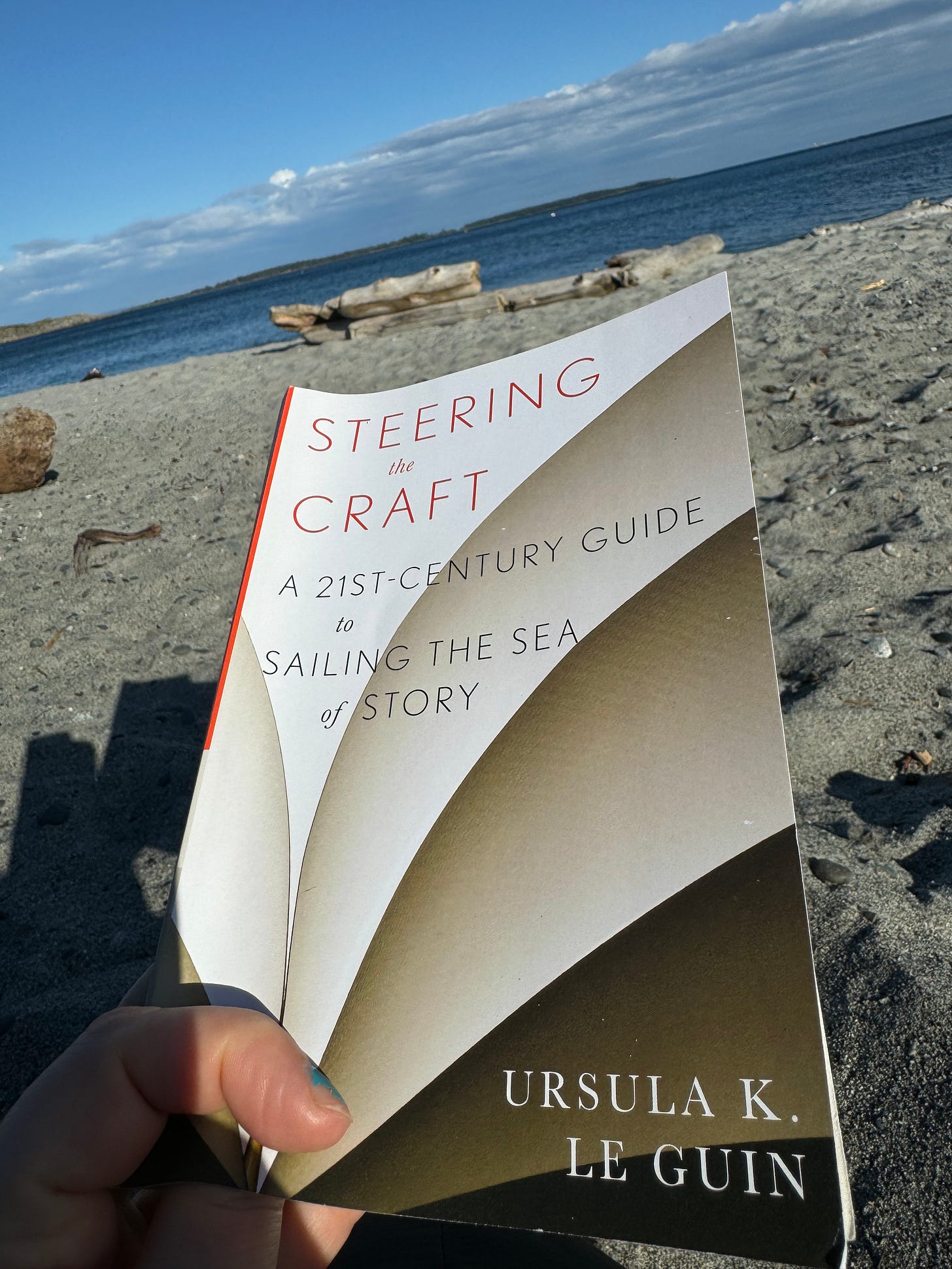Steering the Craft: A 21st-Century Guide to Sailing the Sea of Story by Ursula K. Le Guin
Books | "Ultimately you write alone. And ultimately you and you alone can judge your work."
Steering the Craft: A 21st-Century Guide to Sailing the Sea of Story by Ursula K. Le Guin Harper Collins, 2015
Steering the Craft: A 21st-Century Guide to Sailing the Sea of Story by Ursula K. Le Guin offers a no-nonsense approach to the craft of writing. It steers us away from focusing only on self-expression as craft and towards other important elements such as grammar, punctuation, sound, sentence structure, tense, and point of view.
Steering the Craft, a slim volume with advice, examples, and exercises developed from a five-day workshop Le Guin taught, was originally published in 1998 and was “enthusiastically” received. Unsurprisingly, it sold well, and Le Guin decided to update it 2015.
Her thoughts on group workshop really align with mine. “Group criticism is great training for self criticism,” she maintains. But at the end of the day, the writer needs to learn how to evaluate and judge their own work for themselves:
Ultimately you write alone. And ultimately you and you alone can judge your work.
Sometimes I fear the workshop model makes writers, especially new writers, too dependent on the opinion of others, so I was happy to see Le Guin’s take.
Le Guin also makes good arguments for writers understanding the conventions of the language they are using and considers it a vital part of craft; however, she also has no time for “grammar bullies”.
“If you don’t know the real rules, you may fall for the fake ones,” Le Guin writes and cites pronoun purity as an example of a fake rule:
My use of their is socially motivated and, if you like, politically correct: a deliberate response to the socially and politically significant banning of our genderless pronoun by language legislators enforcing the notion that the male sex is the only one that counts. I consistently break a rule I consider to be not only fake but pernicious. I know what I’m doing and why.
And that’s the important thing for a writer: to know what you’re doing with your language and why. This involves knowing usage and punctuation well enough to use them skillfully, not as rules that impede you but as tools that serve you.
In one of my favourite exercises in the book, Le Guin instructs us to write a paragraph to a page with no punctuation. She also offers suggested subjects with her exercises, which the writer can take or leave. For the punctuation exercise, the suggested subject is as brilliant as the exercise itself:
A group of people engaged in a hurried or hectic or confused activity, such as a revelation, or the scene of an accident, or the first few minutes of a one-day sale.
Although this book offers salient craft advice, what I appreciate most and differs from most writing advice is that Le Guin never leaves her politics at the door—illustrating how craft, storytelling, and revolution need not and should not be separated or compartmentalized.
Support Send My Love to Anyone
Support Send My Love to Anyone by signing up for a monthly or yearly subscription, liking this post, or sharing it!
Big heartfelt thanks to all of the subscribers and contributors who make this project possible!
Connect
Bluesky | Instagram | Archive | Contributors | Subscribe | About SMLTA





